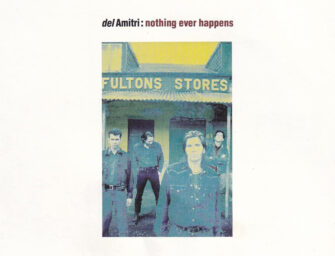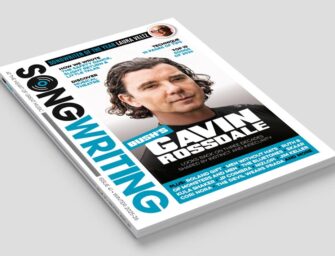
Shakin’ Stevens: “Everybody’s got secrets in their family”
We catch up with an 80s megastar who’s looked back at his family history to find his own musical roots
Being reminded of the achievements of Shakin’ Stevens (Shaky to his friends) is quite an astonishing thing. His run of hits in the 80s makes the rock and roll revivalist one of this country’s most successful musicians – in fact, according to a 2012 list by Official Charts Company, it made him the UK’s 25th most successful singles artist, sandwiched between U2 and Britney Spears. His four No 1 hits include the festive juggernaut Merry Christmas Everyone and the self-penned hit Oh Julie.
Stevens was no overnight success. Born Michael Barratt, the Welsh singer adopted his stage name in 1968 while fronting the band Shakin’ Stevens And The Sunsets. The group toured constantly and released five albums in the early 70s before Stevens departed for the West End, where the title role in the musical Elvis! awaited. The exposure it earned him was the touchpaper needed to ignite his solo career, and the rest was ‘quiff-story’.
After a relatively quiet few years, Shaky has returned with a new album and a new sound. Heavily influenced by his family history, Echoes Of Our Times is a bluesy and rootsy record addressing the plight of the Cornish copper miners, those who gave their lives fighting for their county and a secret family feud.
Keen to uncover a little more about the album, we gave the great man a call…
Where did the idea to write such a personal album come from?
“I started recording an album in a rootsy style and I then began to think about my family. I didn’t know anything about them. When I was growing up it was all ‘seen and not heard’ and ‘speak when you’re spoken to.’ There was also a feud in the family which was all hush hush. That research went on continuously and we found that there were some stories with real depth in there.”
And those stories then formed the songs on Echoes Of Our Times?
“Yes, for instance Down In The Hole is about my grandfather who was born in 1865. He was a copper miner at the age of 10. They had to go way down in the mine. It took an hour or so to get down there, they went down on ladders and did their work. The conditions were dreadful with poison air and no toilets and there were kids down there. When they finished their day, which was very long, they had to go back up these ladders and some of them were tired and they would fall. That’s where the song came from and we thought ‘it’s family, it’s close, why not do that?’
“That’s basically how the album came about. I’ve been using this band for quite a long time when I’m out on tour and I’ve always had great musicians around me from the very early days, we’ve been using harmonica and mandolin for quite a while. It’s quite a big band actually, there’s trumpet and flute as well.”
Did the other songs have similar origins?
“One went to another. Echoes Of Our Times was about my father and Leonard Venables, my mother’s brother who was in the First World War – he lied about his age and got in as a gunner. He died on the 15 January 1918 and it took him eight days to die, and then his son was born eleven days later. Stories came like that really and so it went on.
“Behind Those Secret And Lies, I mean everybody’s got secrets in their family and indeed that word ‘lie’ and so that’s how that came about. We still don’t know the full story, we’ve gone back as far as we can go because the family don’t like to say. We got as much as we could really.
“The Fire In Her Blood, that came from my paternal grandmother who was a Salvationist. Her name was Florence Jessie and she was born in 1868 in the East End of London. She played squeeze box and was a very talented and giving lady, spiritual as well, and so we did one about that as well and so it went on.”

Shaky: “Rock ‘n’ roll for me is just an umbrella with all other styles under it like blues, delta, rhythm ‘n’ blues and country rock”
How did you go about turning all that research into songs?
“Take Down In The Hole, which I’ve explained, it was basically researching further with my family in Cornwall. The conditions of how they lived actually came in to the lyrics. It’s a very dark story as some of them didn’t live beyond 25. So the music was purposefully very dark and had that kind of riff in it. I could hear harmonica in it and the guy who played it is a fantastic player and it all came together.”
What has the early reaction been like?
“People were surprised I guess, I don’t think they realised it was me, which was a great thing as it’s a move-on stage. It’s the right thing to do I believe. I’ve already moved on in concert. I do some of the hits still but once upon a time I did 50 minutes of hits. If I do a track like Green Door now, we do it with a stand-up bass, snare drum and piano and I sing it differently. People have heard us do it and they say they liked the song when it came out but they like this version better.”
Do you ever worry about the fans response to your new material?
“No, no, the fans that have heard this love it, there’s no doubt about that they love it. It’s a muso album too. There are fantastic things in there; great musicians and stories that people can relate to it. It’s very close to me too because it’s my family.”
Do you feel like your audience have moved on with you?
“Yeah I guess so. The fans have been with me for a long time and they’re pleased and I’m putting it out for another audience as well and it’s good. My music has always been rootsy. Rock ‘n’ roll for me is just an umbrella with all other styles under it like blues, delta, rhythm ‘n’ blues and country rock. Even on some of my early albums there’s country and rhythm ‘n’ blues on there. But I think with this I’ve gone right back to the roots I guess.”
What do you think are the ingredients of a good song?
“For me it’s a beginning a middle and an end. I like riffs and I like hooks. Words are very important. I like a good catchy tune as well as lyrics, but I think when there’s a story in there that people can relate to it becomes part of them. People will hear Behind Those Secrets And Lies and will be thinking about their own family. It’s a personal album to share with a lot of people and they’ll definitely relate to it.”
Were you listening to anything in particular that helped influence the sound of the record?
“Not really, I’ve got a vast collection of stuff anyway. I’ve got lots of blues, rhythm ‘n’ blues, bits of Cajun as well and slide guitar. A mixture of all kinds of stuff. I love listening to records. Everybody’s been taking a bit from each other for decades, even going back to the early blues records, but it’s more like reinventing really. With covers as well, I think that’s a healthy thing because you’re reinventing it for another generation.
“It’s like what The Moody Blues did with Go Now. I don’t think the writers names were even on the labels then, so I believed it was The Moody Blues and that was that. It was a great record but later on in life I found out it was done by an American lady. The Moody Blues introduced it to another generation, so I think that’s great.”
You had your own huge success with cover versions but did it mean more when Oh Julie went to No 1, because you’d written it yourself?
“We all strive for a No 1 in the charts and to get one is a great achievement, especially back then. It’s great anyway but to do it with a song that you’ve written yourself is a good feeling, a very good feeling. There was no depth to Oh Julie lyrically but it was a catchy little tune. It’s one of those things, it was released and it went to No 1 and it was also covered by Barry Manilow.”

Shakin’ Stevens: “The 80s was such a heady thing but I carried on touring”
Do you have any particular highlights from that period?
“I did this track called Teardrops in the early days and it had a similar sound to Sleep Walk by Santo & Johnny, especially the solo. I thought that Hank Marvin from The Shadows would be great on it and I was doing this quiz show and he happened to be on the panel. Sometimes that’s how things work. I just casually asked if he’d play on the record and he said he’d love to. It was right up his street anyway, so I went down to his studio and he put the guitar on it. That didn’t get to No 1, it got to No 5, but to actually have Hank Marvin on it was a great thrill for me.”
You also worked with Albert Lee, did that come about in a similar way?
“Albert Lee was on my first album with CBS and he played on the entire album. He was on my first UK hit as well, Hot Dog. It was a Corky Jones song, but we all know him by the name “Buck” Owens. The story goes that he heard the version of the song that I did and started doing my version, which is a great compliment really. We pushed up the kick in the track so it was very loud, in those days to have the bass drum up that loud was very unusual. We also had B.J. Cole on steel guitar, he’s second to none and has played with loads of people and he did that whole album with me.”
Are there any particular musicians you’d still like to work with?
“If I put my thinking cap on I’m sure there is, but there is another old one that comes to mind. I was out in Nashville doing some tracks. I co-wrote a song called How Could It Be Like That which had a swampy feel to it. I said to the producer ‘I tell you who’d be great on this, Tony Joe White’ and so he rang his number and Tony answered the phone and said ‘oh yeah, Shakin’ Stevens’ and he came down to the studio. He turned up in his pickup truck with his golf bag in the back and came out with his cowboy boots on and walked in. Honestly it was all mouths open. He heard the track and he loved it and it was a fabulous moment. We exchanged anecdotes because he wrote as well – Rainy Night In Georgia, Polk Salad Annie and also Steamy Windows – so a great writer and a gentleman. That was fantastic and he fitted the song great and it’s on the Now Listen album.”
Before Now Listen you hadn’t released an album for a while, were you still writing during that time?
“In 1992 I had The Epic Years out, that was a hits album and on there was actually a song Radio which was co-written by Bob Heatlie, who wrote Merry Christmas Everyone, and Gordon Campbell, who wrote Because I Love You, two great Scottish writers. Roger Taylor played drums on it and I was knocked out by the track. At that time I was out of contract and I’d broken up with management as well. I thought we’d gone as far as we could go from where we started to the end of the decade.
“The 80s was such a heady thing but I carried on touring and did a lot of gigs on the continent. I did a 2005 tour and I was writing and recording again at that time. We went out to Germany and I met up with the A&R guy who first signed me for CBS. We played him the tracks and he loved them and so it was all systems go but just as everything was ready he left and a new guy came in who said ‘I didn’t sign you, we can still put this out but we’re not going to do anything to help’, so we didn’t release it and I ended up using a lot of those tracks on the Now Listen album.”
Bringing it back to now and these very different times in the music industry, how do you feel ahead of the release of Echoes Of Our Time?
“It really was a different time. There wasn’t a lot of TV when I started. You only had a few kids shows, The Chart Show on Saturday morning and Top Of The Pops, which you had a chance of doing if you got inside the Top 40. Apart from that, there wasn’t a lot around really. Different times, record sales were bigger, I think for a single it was 250k physical sales and 500k for a gold, so totally different. But there are new opportunities to reach people now, especially on the internet.
“We’re doing this album ourselves. We’ve got a great team around us and we’re very pleased with them. We’re very proud of the album and I can’t wait for it to get out. It’s very personal.”
Interview: Duncan Haskell
Shakin’ Stevens’ new album Echoes Of Our Time is out 16 September. To find out more about the release and Shaky himself, go to shakinstevens.com




































Interesing and instructive interview.Respect and admiration for You Shakin.Than you for the new album is fantastic.Greetings.